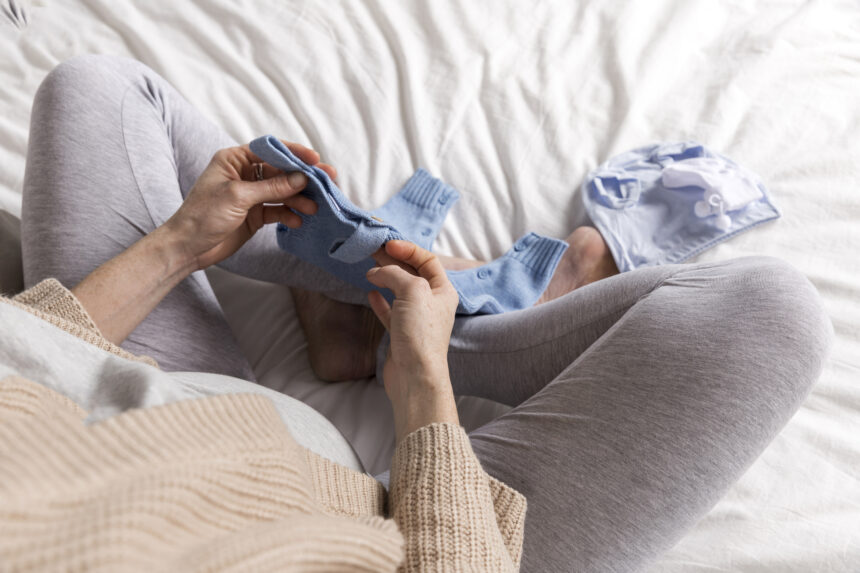Title: Coping with Pregnancy-Related Hemorrhoids and Anal Care
Introduction:
Pregnancy brings about numerous changes in a woman’s body, and one common discomfort many expectant mothers experience is hemorrhoids. Hemorrhoids are swollen veins in the rectal area that can cause pain, itching, and discomfort. Pregnancy hormones, increased blood volume, and the pressure exerted by the growing uterus can contribute to the development or worsening of hemorrhoids. This article aims to provide insights into coping with pregnancy-related hemorrhoids and offer essential tips for anal care during this special time.
Understanding Pregnancy-Related Hemorrhoids:
Hemorrhoids are swollen blood vessels in the rectal area that can occur internally or externally. During pregnancy, hormonal changes and increased pressure on the veins in the pelvic region can lead to the development or exacerbation of hemorrhoids. Symptoms include itching, pain, bleeding during bowel movements, and discomfort while sitting or moving.
Tips for Coping with Pregnancy-Related Hemorrhoids and Anal Care:
- Maintain Good Hygiene:
Keep the anal area clean by gently washing with warm water after bowel movements. Avoid using harsh soaps or wipes that contain fragrances or alcohol, as they can further irritate the area. Pat dry with a soft towel or use a hairdryer on a low, cool setting.
- Use Gentle Cleansing Agents:
Consider using unscented, moistened wipes or witch hazel pads to clean the anal area. These can help soothe the hemorrhoids and provide relief from itching and discomfort. Be sure to choose products that are specifically formulated for sensitive skin.
- Avoid Straining During Bowel Movements:
Straining during bowel movements can worsen hemorrhoids and cause additional discomfort. Ensure you have adequate fiber in your diet by consuming fruits, vegetables, whole grains, and legumes. Staying hydrated and engaging in regular physical activity can also help prevent constipation and make bowel movements easier.
- Practice Good Toilet Habits:
Avoid sitting on the toilet for extended periods. Strive to have regular bowel movements and respond to the urge to defecate promptly. Use a squatting position by placing a small stool or a stack of books under your feet while sitting on the toilet. This position helps straighten the rectum and makes elimination easier.
- Apply Topical Treatments:
Over-the-counter hemorrhoid creams or ointments containing ingredients like hydrocortisone or witch hazel can provide temporary relief from pain and itching. Apply a thin layer to the affected area following the product’s instructions. Consult with your healthcare provider before using any medication or topical treatment.
- Use Cold Compresses:
Applying a cold compress to the affected area can help reduce swelling and alleviate discomfort. Wrap a few ice cubes in a clean cloth and gently apply it to the hemorrhoids for a few minutes at a time. Be sure to wrap the cold compress in a thin cloth to prevent direct contact with the skin.
- Soak in Warm Baths:
Taking warm baths, also known as sitz baths, can help soothe hemorrhoids and promote healing. Fill a bathtub or basin with warm water and sit in it for about 15-20 minutes. Repeat several times a day or as needed to alleviate pain and reduce swelling.
- Use Cushions or Donut-shaped Pillows:
Sitting on a cushion or donut-shaped pillow can help relieve pressure on the hemorrhoids when sitting for extended periods. These cushions provide a comfortable surface with a center cutout that reduces direct contact and pressure on the affected area.
- Wear Loose-Fitting Clothing:
Choose loose-fitting, breathable clothing to prevent irritation and friction around the anal area. Tight clothing can exacerbate hemorrhoids and cause discomfort. Opt for cotton underwear and avoid synthetic materials that can trap moisture.
- Consult with Your Healthcare Provider:
If the hemorrhoids persist, worsen, or cause significant discomfort, consult with your healthcare provider for further evaluation and guidance. They may recommend additional treatment options, such as prescription creams or procedures, if necessary.
Conclusion:
Coping with pregnancy-related hemorrhoids requires implementing proper anal care practices and lifestyle modifications. By following these tips, including good hygiene, gentle cleansing, avoiding straining during bowel movements, and using topical treatments, you can effectively manage the symptoms and promote healing. Remember to consult with your healthcare provider if you have concerns or if the hemorrhoids persist or worsen. With proper care, you can alleviate discomfort and focus on enjoying a healthy and comfortable pregnancy.










